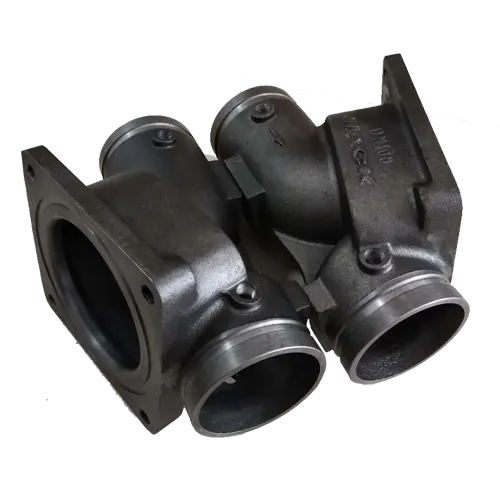Mobile:+86-311-808-126-83
Email:info@ydcastings.com
Researching the Benefits of Cast Iron Impellers in Industrial Applications and Performance
The Role of Cast Iron Impellers in Modern Engineering
Impellers are critical components in various mechanical systems, particularly in pumps and turbines, where they are responsible for converting rotational energy into fluid flow. Among the various materials used to construct impellers, cast iron is one of the most prominent due to its durability, strength, and cost-effectiveness. This article explores the applications, advantages, and considerations of using cast iron impellers in modern engineering.
What is a Cast Iron Impeller?
A cast iron impeller is a type of impeller manufactured from cast iron, a material known for its excellent casting properties. The process of casting allows for the creation of complex shapes, which can be difficult to achieve with other materials. Cast iron impellers are typically used in centrifugal pumps, where they are essential for moving water and other fluids efficiently. The design of an impeller can significantly affect the performance of a pump, influencing factors such as flow rate, efficiency, and pressure generation.
Applications of Cast Iron Impellers
Cast iron impellers are widely used across various industries. In the water and wastewater treatment sector, they play a vital role in pumps that handle large volumes of fluids. They are also prevalent in agricultural irrigation systems, swimming pool pumps, and HVAC applications. Beyond these sectors, cast iron impellers are found in the manufacturing of industrial machinery, where they contribute to the movement of liquids and gases in processes that require reliable and robust components.
Advantages of Cast Iron Impellers
1. Durability One of the primary advantages of cast iron impellers is their robust nature. Cast iron can withstand significant wear and tear, making it ideal for high-stress applications where durability is crucial. This characteristic extends the lifespan of the impeller and reduces the frequency of replacements, leading to lower maintenance costs.
cast iron impeller

2. Cost-Effectiveness Compared to materials like stainless steel or high-performance polymers, cast iron is often more affordable. This cost advantage makes cast iron impellers a preferred choice for large-scale operations where budget constraints are significant.
3. Castability The ability to cast complex shapes makes it easier to design impellers that are optimized for specific fluid dynamics. The precision in design can enhance performance by improving flow characteristics and efficiency.
4. Corrosion Resistance While cast iron is not inherently corrosion-resistant, treatments like the application of coatings or the use of specific alloys can enhance its resistance to corrosive environments. This adaptability allows cast iron impellers to be used in various applications without significant degradation over time.
Considerations When Using Cast Iron Impellers
Despite their advantages, there are some considerations when selecting cast iron impellers. One primary concern is their weight; cast iron is denser than other materials, which can add to the overall weight of the system. This factor must be accounted for in the design and mounting of pumps and turbines. Additionally, cast iron can be susceptible to rust and corrosion in highly acidic or basic environments unless adequately treated. Therefore, understanding the operating conditions is essential for ensuring the longevity of cast iron impellers.
Conclusion
In summary, cast iron impellers are valuable components in the realm of fluid dynamics, offering significant advantages in terms of durability, cost, and design flexibility. Their widespread use across various industries illustrates their reliability and effectiveness in moving fluids efficiently. As technology and materials science continue to advance, cast iron remains a stalwart choice for engineers seeking a balance between performance and affordability in impeller design.
-
Why Should You Invest in Superior Pump Castings for Your Equipment?NewsJun.09,2025
-
Unlock Performance Potential with Stainless Impellers and Aluminum End CapsNewsJun.09,2025
-
Revolutionize Your Machinery with Superior Cast Iron and Aluminum ComponentsNewsJun.09,2025
-
Revolutionize Fluid Dynamics with Premium Pump ComponentsNewsJun.09,2025
-
Optimizing Industrial Systems with Essential Valve ComponentsNewsJun.09,2025
-
Elevate Grid Efficiency with High-Precision Power CastingsNewsJun.09,2025











